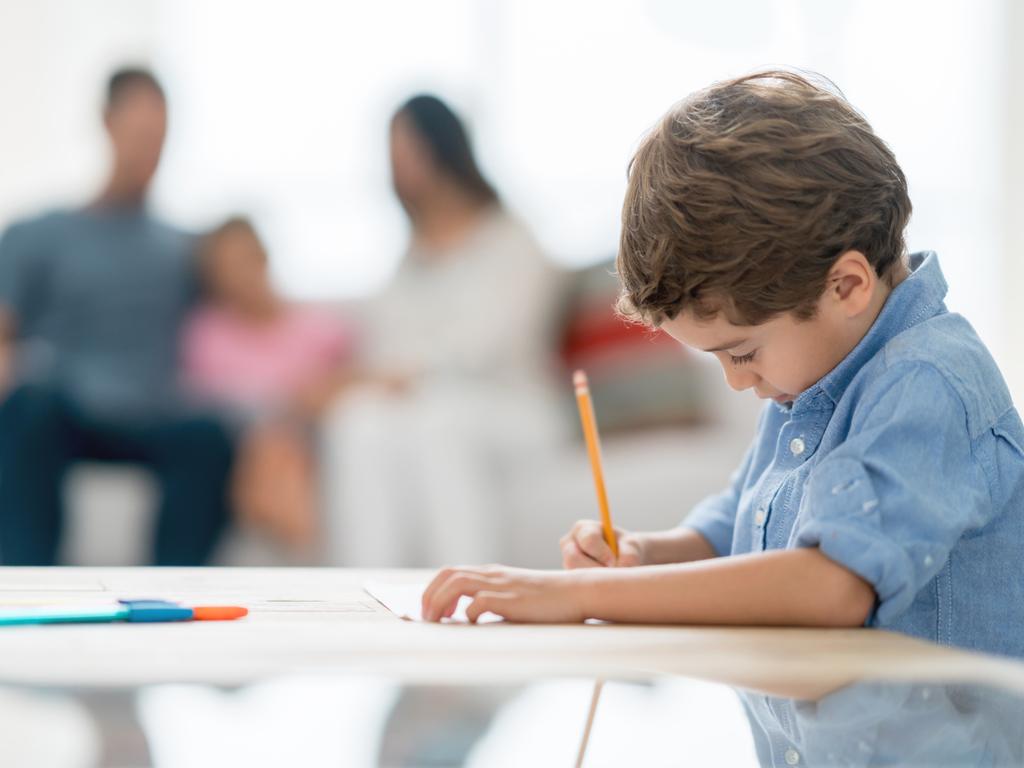School holidays should be more than something parents must suffer and survive
The relentlessness of full days at home with children can be a shock to the system for those normally in a 9am-5pm work routine. Add to that the pressure to have fun, and it’s a perfect storm.

In some parenting circles it’s becoming unfashionable to talk about loving the school holidays. For many families, the struggle of organising care for school-aged children is a constant stressor during what is supposed to be a break. When logistically or financially people simply cannot afford this time with their kids – when holidays are more stressful than work days – I think we have a problem. Kids and parents alike are being robbed of holiday magic, but are we really powerless to stop it?
School-aged children highlight one of the biggest flaws of the dual-income society around which our lives increasingly are structured. Babies and toddlers usually stay in daycare throughout the holiday period and present less of a logistical challenge unless they are sick, which is a common occurrence year round.
However, once children hit school age the holiday problem is laid bare – who looks after them when school is out?
Pricey out-of-school care programs abound and you may notice busloads of schoolchildren being carted around to various activities during business hours. It’s better than no supervision at all and I’m sure it has its benefits, but the feeling of free time spanning out before you, of exploration, possibility and spontaneity, seems a bit lost in the vacation care model. It seems like an extension of the routine, rigours and social demands of school life.

Family and friends are often called on for informal care arrangements, which is great but not an option for some and not as reliable as some parents may require. If their line of work allows and they have an accommodating employer, parents can sometimes cobble together tag-team arrangements with a partner by working non-standard or flexible hours, working from home or taking unpaid leave. This often means solo parenting and a stressful juggle if the kids are at home while you are trying to work.
Even parents who are able to negotiate time off during the holidays can struggle on their own with the full-time care of kids who are usually at school or daycare. Having everyone at home, organising fun things, doling out snacks and meals endlessly while dealing with behaviours, emotions or quarrels can create a tense dynamic at the best of times.
The relentlessness of full days at home with children can be a shock to the system for those normally in a 9am-5pm work routine. Add to that the pressure to have fun, heightened expectations of quality time, and it’s a perfect storm.
This isn’t a new problem. In 1951 American composer and playwright Meredith Willson referenced the school holiday struggle with the line “And mom and dad can hardly wait for school to start again”. His Christmas carol became a global sensation and though the overall feeling of It’s Beginning to Look a Lot Like Christmas is jolly and nostalgic, the line about the stress of holidays sadly rings true, then and now.
The release of the song coincided with the emergence of the nuclear family in much of the Western world. Parents, particularly at-home mothers, found themselves increasingly isolated as multi-generational households became a rarity and community was eroded by the beginnings of suburban sprawl or flight to the suburbs. The effects of winding up alone in a role previously shared and performed in the company of others were most acute during the overwhelm of the holidays.
Even when families commonly did have a parent who was freely available to care for children during the break, the stress of holidays was a acknowledged widely enough to spawn Willson’s lyrics.
Holidays increasingly are taking on the hue of something to be suffered and survived, even if the reasons are changing. Paid work is emerging as the sweet relief just out of reach and our children feel it. They know when we would rather be somewhere else. Parents feel it too – this isn’t how we remember school holidays and that brings with it a certain sadness.
Are we so well trained to engage in paid work, so accustomed to prioritising our careers and making meaning through our professions, that we now flounder in informal and personal settings?
Rather than defending time with our children and demanding better systems to accommodate school holidays, parents are crying out for cheaper vacation care, shorter school holidays and longer school days.
We could be advocating to legislate increased leave, shorter work hours and increased work flexibility for parents of young children, but we seem unwilling to place real value in the connection, relationships and care that humans are hardwired to expect. We seem more comfortable imposing adult schedules on brains and bodies that are not yet fully developed, than investigating ways to let kids be kids.
Having all the kids at home can be hard work, but this is by far outweighed by the joy of having nowhere to be, letting the kids wake up whenever they choose and watching the little ones finally get to play with their older siblings rather than having to wave goodbye to the school bus everyday. I soak up the way they go to bed completely exhausted after a day outside. The way they blossom and grow during the holidays in ways they cannot during the relentlessness of a school term. They go back to school a completely different child, having had the space to learn differently and explore.

I work non-standard hours remotely which is not as lucrative as full-time work but the flexibility is priceless. You just couldn’t pay me to give up this time. My work of caring for the kids is rather unchanged during the holidays – if anything, the kids entertain each other more and have less need for me. I usually have more family and friends around to help.
We certainly have our moments where everyone isn’t getting along or kids get bored but those happen year round.
I realise as an adult how much the magic of holidays wasn’t about what we did but who we were with. Much of what seemed like effortless fun to be had was made possible by being around people who loved us and wanted to spend time with us. Now I am the parent I do feel responsible for some of the fun and the background organising that often underpins it, but it’s easier knowing the magic is really just time spent with people you love.








To join the conversation, please log in. Don't have an account? Register
Join the conversation, you are commenting as Logout